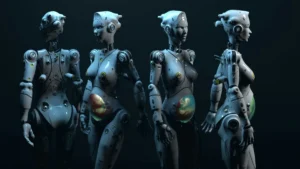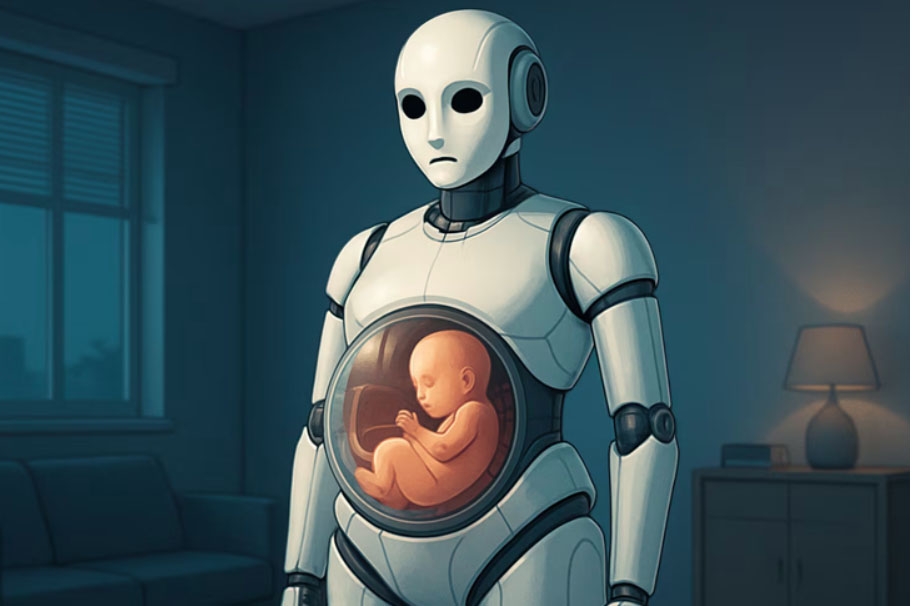A pregnant robot being developed by a research team at Nanyang Technological University, Singapore, has sparked strong reactions on social media.
According to ChosunBiz, the robot can carry a pregnancy for 10 months and give birth like a real mother thanks to an “artificial womb.” The first prototype is expected to debut in 2026, with a price of around 100,000 yuan 
The project is led by Dr. Zhang Qifeng, who emphasized that this innovation is not merely an embryo incubator but a human-like biological system capable of simulating the entire reproductive process from fertilization to birth.
The artificial womb will be the centerpiece of this technology, nurturing the fetus in amniotic fluid and providing nutrients through a system of tubes. Dr. Zhang stated that animal trials have shown promising results, and the technology is currently being refined before being integrated into the robot’s abdominal cavity for pregnancy testing.
In fact, this is not the first time artificial pregnancy experiments have been conducted. In 2017, the journal Nature Communications reported that American scientists successfully raised a lamb fetus equivalent to a 23-week-old human fetus inside a “biobag” for four weeks. However, Dr. Zhang noted that the biobag was limited to incubating premature embryos, whereas their robot aims to replicate the entire pregnancy process.

Following the project announcement, the phrase “world’s first pregnancy-supporting robot to debut within a year” became trending on Weibo, and a video interview with the research team on Douyin garnered nearly 4,000 comments.
Public reactions to the idea are diverse. Many critics argue that it is inhumane, expressing concerns about the lack of maternal bonding and the origin of reproductive cells. Conversely, supporters see potential in the technology, from reducing the physical burden of childbirth to offering new hope for infertile couples, with many sharing personal stories of failed in vitro fertilization attempts.
As the debate intensifies, the project highlights advancements in artificial intelligence (AI) and robotics while raising important questions about the boundaries between technology, ethics, and human life.